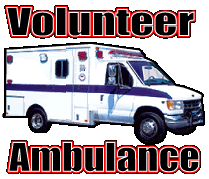 Hospital physicians, nurses and other medical workers committed nearly 9,400 "serious medical errors’’ in 2007 that led to patients developing infections, blood clots and other conditions that threatened their health, a report released today concludes.
Hospital physicians, nurses and other medical workers committed nearly 9,400 "serious medical errors’’ in 2007 that led to patients developing infections, blood clots and other conditions that threatened their health, a report released today concludes.The report, by the state Department of Health and Senior Services, is the first to reveal where mistakes occur, and how the public may use the information to shop for the best hospital care. Previous hospital "report cards" simply graded hospitals on the quality of their medical care and had no specific information about where and how often mistakes happen.Disconcerting numbers of preventable medical errors are occurring in our health facilities. Now consumers will know these results,’’ Patricia Kelmar said, associate state director for advocacy for AARP-New Jersey, which pushed for the tougher reporting requirements. "Equally important, every hospital can see their own levels of mistakes compared to others, which we hope will encourage them to make the changes necessary to improve patient safety throughout the state."
Collectively, New Jersey’s 72 hospitals committed more mistakes than the national average in how frequently surgical patients developed an infection, and how frequently their surgical wounds "split open,’’ according to the report.
"By publicly reporting hospital’s scores, we encourage all hospitals to improve care,’’ said Health Commissioner Heather Howard.
New Jersey hospitals committed as many or fewer errors than other hospitals nationally in 10 other areas, including leaving an instrument inside a patient during surgery; accidentally puncturing an organ; giving the wrong blood type; injuring a mother or baby during a vaginal delivery; and failing to prevent hip fractures, punctured lungs, bleeding after surgery, and blood clots in the lungs and large veins.
On quality, the report card judged how hospitals responded to patients suffering a heart attack and heart failure, battling pneumonia and undergoing surgery. Only one hospital scored the highest score of 100 in all four areas: Hackettstown Regional Medical Center in Warren County.
"It takes an entire team, not just one individual, to make quality a priority,’’ Hackettstown Regional Medical Center President and CEO Gene C. Milton said. "This is something our hospital looks at closely.’’
St. Barnabas Medical Center in Livingston is an example of how one facility could perform exceptional in some areas and below par in others.
St. Barnabas made more mistakes than the national average in four of the 12 patient safety measures: accidentally puncturing an internal organ; causing injuries to mother and infant during a vaginal delivery; puncturing a lung; and failing to prevent blood clots in the lung or large veins.
But in measuring quality, St. Barnabas achieved perfect scores of 100 in treating heart failure and heart attacks, and ranked in the top 10 percent for providing surgical care.
The report is an important exercise for hospitals executive and employees to demand more of themselves, said Fred Jacobs, executive vice president for the Saint Barnabas Health Care System and Director of its Quality Institute.
"It’s important for hospitals to develop an environment of quality,’’ said Jacobs, a former state health commissioner who sat on a committee that designed the report. "The corporate board has given the direction that we will be in top 10 percent of hospitals,’’ Jacobs said.























No comments:
Post a Comment